Eight years on, Michael Rasmussen returns to Tour de France as journalist
Dane on Froome and the questions asked of the yellow jersey
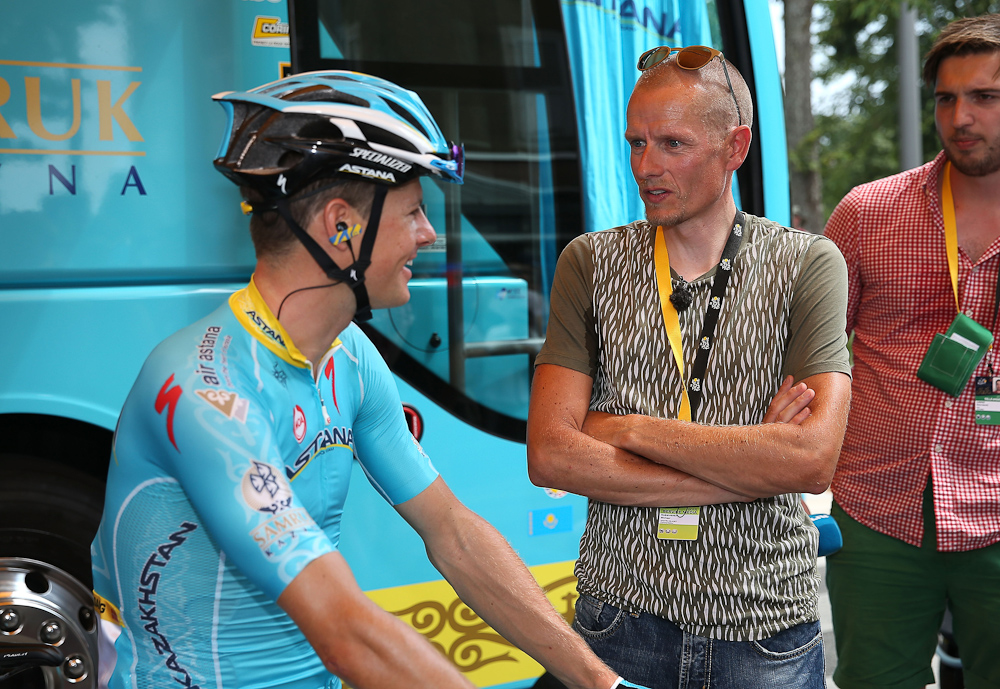
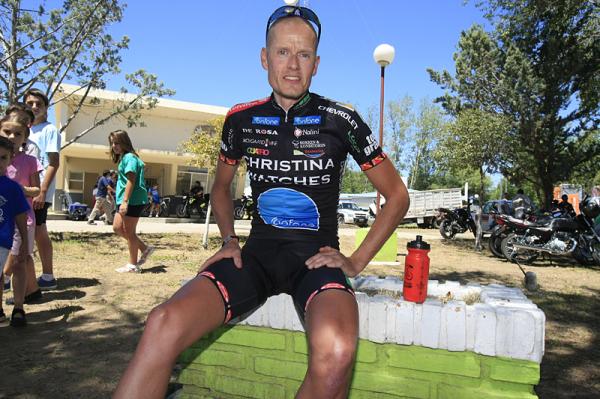

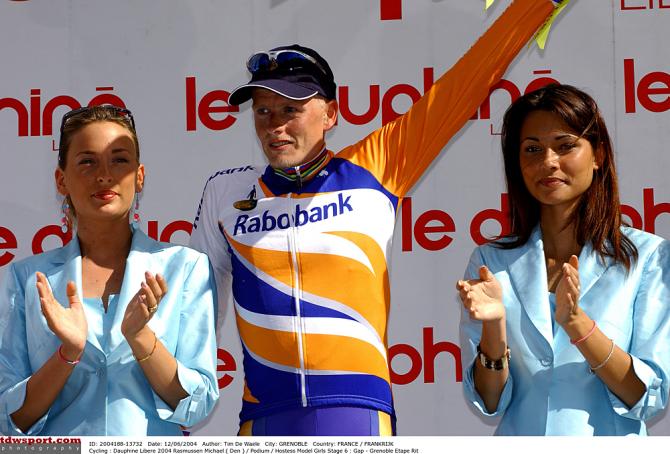
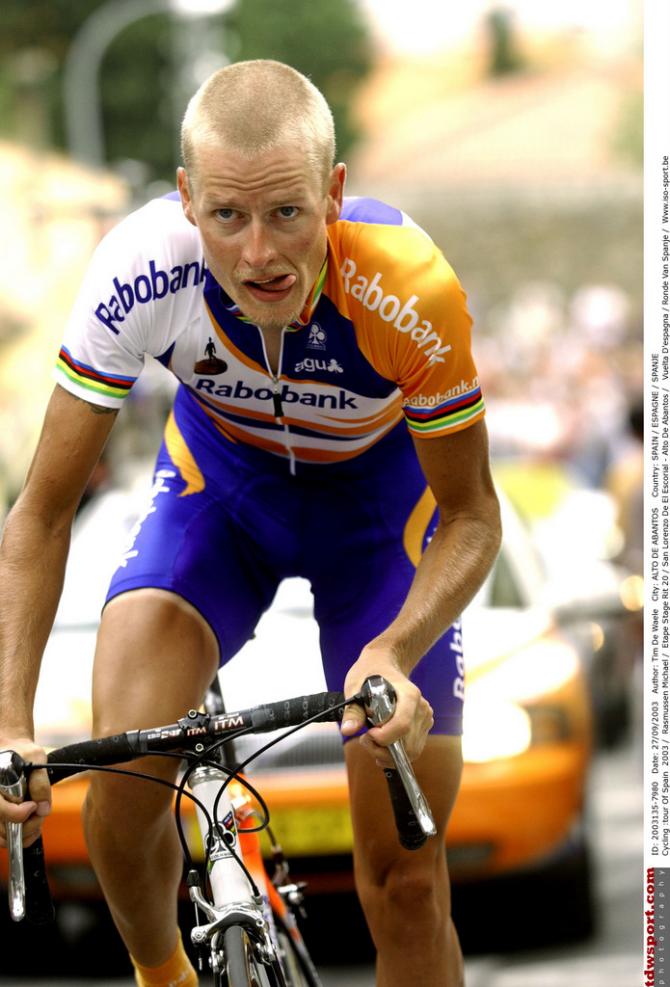
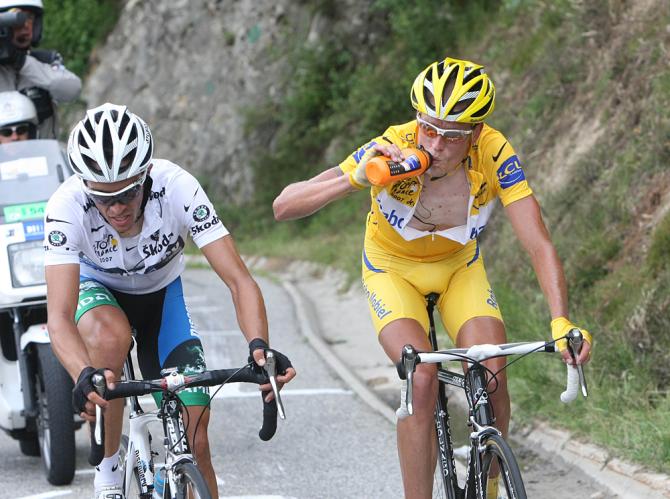
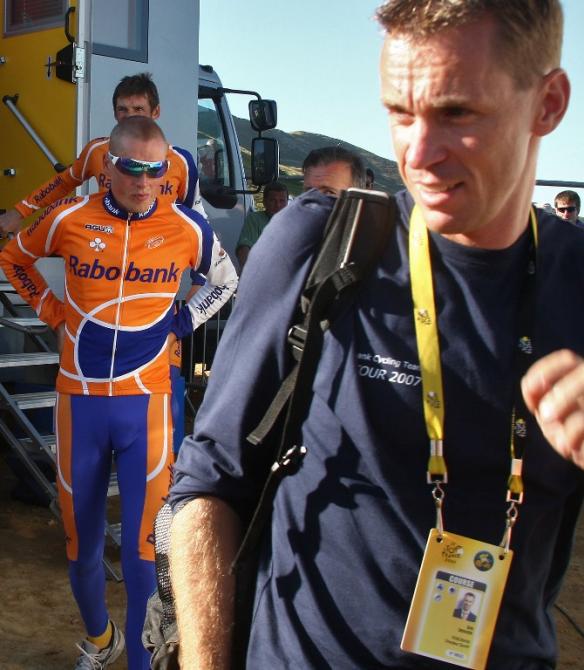
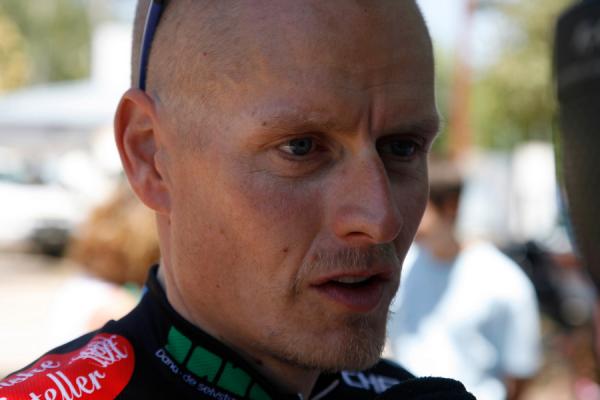
It was mere coincidence, perhaps, but it was hardly appreciated behind the darkened glass above that a small media scrum arrested Michael Rasmussen just as he was passing the Team Sky bus ahead of stage 14 of the Tour de France in Rodez.
Rasmussen returned to the race on Saturday for the first time since he was excluded from the 2007 Tour while wearing the yellow jersey, after the furore surrounding his missed doping controls in the build-up finally proved too much even for his Rabobank team.
Following a two-year ban, Rasmussen made a low-key comeback with the Miche and Christina Watches Continental teams but was deemed persona non grata by squads at higher levels. Since confessing to doping in 2013, Rasmussen has set about building a new career for himself as a columnist.
While Lance Armstrong's controversial "return" to the Tour was limited to taking part in Geoff Thomas' charity ride a day ahead of the race caravan, Rasmussen will cover the remainder of this Tour from the press room for Danish newspaper Ekstra Bladet.
Scarcely carrying a gram of fat more than during his time at CSC and Rabobank, the shaven-headed Rasmussen remains a distinctive figure, drawing plenty of double takes when he entered the village départ followed by a Danish television crew. "It's a little intense right now," he smiled. "But I imagine it will taper off over a few days. I won't seem quite as interesting and I can do my job."
Rasmussen spent his stint in the yellow jersey attempting to fend off the suspicions over his performances and his attempts to evade testing, and conversation inevitably turned to the current maillot jaune, Chris Froome (Sky), and the scrutiny that he has faced in recent days.
"For sure he's very focused on the weight and that certainly makes a difference, but I don't know how he is training and I would rather not speculate on it," Rasmussen said asked to draw comparisons between his and Froome's ability to glean so much power from such lean physiques. "It's been a long time since I've been competing at that level. I did it in another way and that was not quite according to the rules. I do not want to speculate on how he does it.
The latest race content, interviews, features, reviews and expert buying guides, direct to your inbox!
"I think he's training shitloads to ride as fast as he does. I think all the yellow jerseys did."
Rasmussen blamed the weight of history for the innuendo that has greeted Froome's performances, pointing to an inconvenient truth by noted wryly that doping on the Tour pre-existed the blood doping era when asked if he felt that his generation had poisoned the well for the current crop.
"Yeah, I did. Or Eddy Merckx did, or Fausto Coppi did. Like I said before there's a long history of doping in cycling and unfortunately that's a heritage the cyclists today have to deal with it. It takes time to change a culture," he said.
"From the history of cycling, doping has been around all the time in cycling and unfortunately when people ride the way Froome does, people instantly speculate just because the only thing you have to do is look in the history books and see who has been cheating in the past to get the yellow jersey.”
Rasmussen went on to add that he had sympathy for the position Froome finds himself in. "It's sad that there's so much focus and speculation because there's no smoking gun. He's saying the right thing," he said. "I think he's actually very much at ease. If he knows he's clean then he has nothing to fear."
Asking the question
At the 2007 Tour, of course, Rasmussen had nine post-stage press conferences in the yellow jersey, and never conceded so much as an inch in that period. He gently dismissed the idea that the repeated blunt denials had been as difficult as the initial act of doping.
"If you accept the condition that once you answer the question honestly, your cycling career is over, then it's a stupid question to ask," Rasmussen said. "I've never heard any rider so far say ‘Yes' to the rolling camera while he's racing in his active career, so it's not really the answer that's wrong but the question. It doesn't change people's opinion whether you ask the question or not. It's a useless question."
Rasmussen is now, of course, on the other side of the fence, though he seemed at a loss as to what questions should instead be asked of suspect riders. "I don't know, I don't have the answer to that," he said. "But that question is definitely dumb because you know the answer."
In the aftermath of his exclusion from the 2007 Tour, Rasmussen complained that he had been made a scapegoat for cycling's ills, and continued to dope on his return to racing in 2010, though his 2013 confession provided important evidence for the Danish Anti-Doping Agency's recent inquiry on cycling in his home country.
Despite his assertion that there has been a change in mentality in the peloton – "It's a cleaner peloton now than it was ten years ago," he said – Rasmussen admitted that he had no regrets about the path he followed during his own career.
"I do not regret that I took doping if that's what you're asking," Rasmussen said. "I think that was a condition in order to be competitive and battling for what I was battling for in those times. I was pursuing victory in the Tour de France since I was 8 years old. If I had to stop that pursuit, I would have stopped it ten years before.
"I did what I felt I needed to do in order to be competitive, to achieve the goals."

Barry Ryan was Head of Features at Cyclingnews. He has covered professional cycling since 2010, reporting from the Tour de France, Giro d’Italia and events from Argentina to Japan. His writing has appeared in The Independent, Procycling and Cycling Plus. He is the author of The Ascent: Sean Kelly, Stephen Roche and the Rise of Irish Cycling’s Golden Generation, published by Gill Books.